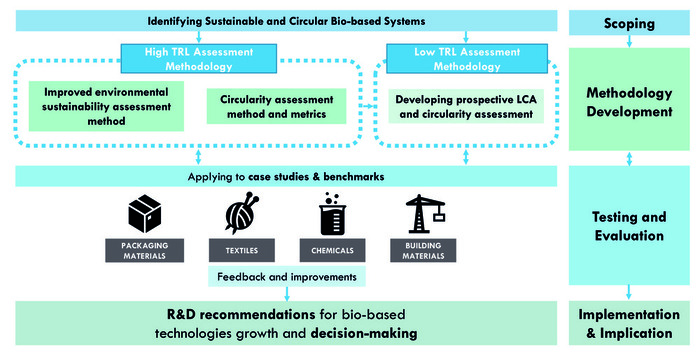Organisations and countries worldwide have instituted policies and regulations to reduce the environmental impact and to increase the overall sustainability of products. Thanks to this push, many innovations and novel technologies are being developed to produce materials and goods which are based on biomass.
To assess if these products are better than conventional products, life cycle assessments are used. Results of these assessments enable to evaluate products which are under development or in the market already. A challenge, however, is that these assessments can be complicated, especially for products that are still under development.
ESCIB aims at developing a comprehensive, robust and fully operational methodology to assess the sustainability of bio-based systems at various technology-readiness levels.
The main objective of the ESCIB project is to support the sustainability of the bio-based economy in Europe.
To achieve this, ESCIB will develop assessment methodologies and thus contribute to the standardisation of such methodologies. The aim is to develop a comprehensive, robust and fully operational methodology to assess the sustainability of bio-based systems at various technology-readiness levels (TRLs).
This methodology is based on a holistic life-cycle approach to evaluate the environmental impacts and circularity along bio-based value chains. Potential socio-economic trade-offs will be addressed and included in the methodology. ESCIB’s integrated way of analysing environmental and circularity impacts along bio-based value chains is also fully in line with the ambition of the European Green Deal (EGD) and the Circular Economy Action Plan (CEAP).
With the involvement of five innovative industry partners in the consortium, which produce bio-based products in different sectors, ESCIB will ensure high applicability of the method which can be used by certification organisations to label and certify products for the benefit of consumers and society. Finally, the results will give orientations for research and innovation programmes in the bio-based sectors.

